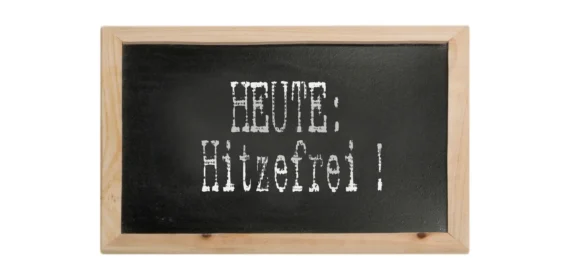Who pays the wages when the authorities send employees into quarantine? Since the beginning of the Covid-19 pandemic, courts have repeatedly addressed this question. According to Section 56 (1) Infection Protection Law (IfGS), employers can claim compensation from the state. If the employer pays for the wages, it can claim compensation for the payments from the state. However, the prerequisite is that the employee is not entitled to continued wage payment pursuant to Section 616 German Civil Code (BGB). This entitlement always exists when the time that the employee does not work through no fault of their own is “proportionately insignificant”. The length of time that the entitlement to continued wage payment exists is regularly disputed.
The state of Rhineland-Palatinate: Entitlement to continued wage payment for the first five days
In the specific case, a bakery chain applied for compensation payments from the state of Rhineland-Palatinate as per the Infection Protection Law as well as compensation for the social insurance contributions for two employees. Both were ordered into a 14-day corona quarantine by the authorities in March this year due to suspicion of infection. The state only granted the employer compensation from the sixth day of the quarantine onward. The reason: for the first five days, the employees were entitled to continued wage payment.
No entitlement to continued wage payment as per the all-or-nothing principle?
The employer then took the case to the Koblenz Administrative Court: A quarantine lasting more than five days is not a “proportionately insignificant time” as per Section 616 German Civil Code (BGB). Instead, this is a significant time and, therefore, the entitlement to continued wage payment is inapplicable as per the “all-or-nothing principle”, namely also for the insignificant period.
The Koblenz administrative judges were of a different opinion: Although there is an entitlement to compensation for the continued wage payment and social insurance contributions pursuant to the Infection Protection Law when an employer also pays this during the quarantine, this does not apply when an employee is entitled to continued wage payment even if they cannot come to work. This complies with Section 616 Sentence 1 German Civil Code (BGB), the judges stated. If an official authority orders an employee into quarantine due to suspicion of infection, this is a hindrance to performance in the person of the employee.
14 days are not a significant time in the case of at least one year of employment
In the opinion of the court, the six or 14-day duration of the absence from work represents a “proportionately insignificant time”. The deciding factor was primarily the relationship between the duration of the employment or service relationship and the duration of the absence from work. From this perspective, an absence from work lasting a maximum of 14 days as a consequence of quarantine cannot be regarded as a significant time for an employment relationship lasting more than one year.
This is also reasonable for employers: If the employer has to continue paying the wages for two weeks yet has employed the staff member for significantly more than a year, this represents a calculable risk.
Due to the fundamental importance of this question, the Koblenz Administrative Court accepted the appeal to the Rhineland-Palatinate Higher Administrative Court.
After the end of the summer holidays, this question could become an increasingly frequent issue for the courts. Due to the increasing spread of the Delta variant of the coronavirus, there is reason to fear that the authorities will have to order quarantines more frequently than before the vacation period. The decision from Koblenz shows that whether employers can demand compensation payments pursuant to the Infection Protection Law also depends on how long the employee has worked for them. For an employment period of longer than one year, a 14-day absence from work is not regarded as a significant time. According to the Koblenz Administrative Court, in this case the employee is entitled to continue to wage payments and the employer is not entitled to compensation on the basis of Infection Protection Law.








